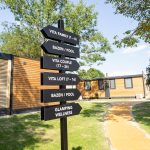April 17, 2020 — The rumor went something like this: Authorities installed a 5G antenna in a secret operation to avoid public outrage. It spread across the small town of Bibinje, outside of Zadar. Soon, unnamed locals returned the favor with their own clandestine attack on the suspicious device — a wifi hotspot funded by the EU.
The Municipality released a formal statement denying any 5G antennas were installed, revealing it kept mum on the free internet to prevent public gatherings.
“As information emerged that the Municipality of Bibinje secretly and at night installed equipment for the 5G signal, we are obliged to deny such allegations,” town authorities wrote in a statement laced with embarrassment and frustration. “That’s not true. It is actually amazing that at such times someone is peddling such false information and lies to the public.”
The damaged apparatus was actually a €15,000 wifi hotspot networked gifted, for free, by the WiFi4EU program. The initiative gives municipalities “free access to Wi-Fi connectivity for citizens in public spaces including parks, squares, public buildings, libraries, health centers and museums in municipalities throughout Europe.”
The anti-5G movement suggested the increased wave density of the new network causes health problems — namely cancer. Animus towards the invisible cell phone network ramped up with the coronavirus’s emergence, which conspiracy theorists tied to 5G in various ways. Either 5G helps the virus’s spread, or the virus has been a diversion to allow nefarious governments to install 5G while fear-laden locals worry about a deadly respiratory illness.
The various theories have gained traction within a certain sect of skeptics in the Balkans.
Authorities said they kept mum on the new wifi hotspot after it’s installation last month because of the COVID-19 pandemic. The router was delivering free internet to three locations in the town where the public typically gathers — the town square, the municipal building, and a popular promenade.
Authorities didn’t want locals racing to free wifi in an age of social distancing and “stay at home.”
“Given the new situation, we found it inappropriate,” authorities wrote in the statement, “bragging about the implementation of equipment that provides free internet access on frequent public areas (outdoors).”
The authorities said the area where the vandals hit was under video surveillance, and they should identify the culprits soon.









